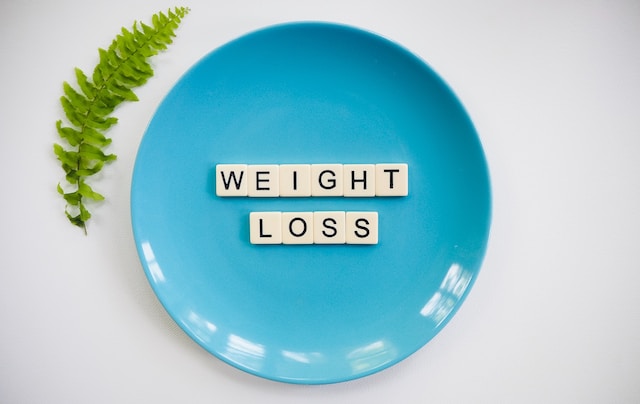Semaglutide vs. Traditional Diabetes Medications: An In-depth Comparison

When you’re diabetic, you must constantly watch over your weight and make sure you don’t gain too much. If you become overweight or obese, your tissue and muscle cells become more resistant to your body’s insulin hormone. It’s not uncommon for people with type 2 diabetes to be affected by obesity or have excess weight, especially with a sedentary lifestyle, unhealthy eating habits, or increased age.
Sounds familiar? If you need help in jump-starting or supporting your weight loss efforts, consider newer treatments like Semaglutide injections.
What must I know about Semaglutide near me?
If you are unfamiliar with Semaglutide and contemplating whether it is a viable option compared to traditional diabetes medications, you may have concerns about its safety and effectiveness. Fortunately, this guide aims to address those uncertainties by providing comprehensive information on Semaglutide, including its nature and a comparison with conventional medications used for diabetes management.
Before comparing Semaglutide with traditional diabetes medications, knowing what it is and how it works is important. Firstly, it is not exactly a drug for diabetes. Instead, it is an injectable medication from a class of GLP-1 receptor agonist drugs designed for weight loss. The FDA approved it as a weight management drug.
But since most diabetics struggle with weight gain and losing weight, Semaglutide can be the solution they need to control their appetite and cravings. Plus, it supports glycemic control, which can help maintain normal blood sugar levels.
When consistently taken with a proper diet and regular exercise routine, Semaglutide can help you lose weight significantly and improve your health and overall well-being. Plus, it can reduce your risk of developing complications associated with diabetes and weight gain, like high cholesterol and high blood pressure.
Why is weight loss significant for treating diabetes?
If you are diabetic, one of the things you must watch is your weight. Your doctor may have even recommended shedding off the excess pounds if they find that you are overweight or obese. That’s because weight loss often results in improved cholesterol, blood sugar levels, blood pressure, and triglycerides. When you’re overweight and start taking Semaglutide, you may notice improvements in those factors after getting rid of at least 5% of your body weight. And the more you lose weight, the better it is for your health! Depending on your condition, a doctor may even recommend losing a maximum of 15% of your body weight.
What do traditional diabetes medications do?
If you are having trouble maintaining your ideal blood sugar levels with a proper diet and exercise, your physician may prescribe medications to reduce them or recommend insulin therapy. Here are the most common ones:
Metformin
If you have type 2 diabetes, your doctor may have prescribed Metformin to improve your body’s sensitivity to insulin and reduce your liver’s glucose production. That way, your body can process insulin more effectively. Some of the possible side effects of this drug include vitamin B-12 deficiency, diarrhea, bloating, abdominal pain, and nausea.
Sulfonylureas
If your body needs more insulin, your doctor may recommend Sulfonylureas like glyburide, glimepiride, and glipizide. However, these drugs may cause you to gain weight and reduce your blood sugar.
Glinides
When you’re diabetic, your pancreas has difficulty producing more insulin. Glinides work faster than sulfonylureas in stimulating insulin production. However, their effect is temporary and may cause the same side effects as sulfonylureas.
SGLT2 inhibitors
These drugs impact how your kidneys filter blood by preventing glucose from returning to your bloodstream. This way, glucose doesn’t end up in your urine. Additionally, they may reduce your risk of stroke and heart attack. The possible side effects, however, may be unbearable, as they include urinary tract infections, vaginal yeast infections, low blood pressure, risk of gangrene, and high cholesterol.
Thiazolidinediones
With these drugs, your body’s tissues develop more sensitivity to insulin. At the same time, they increase your risk of gaining weight, bone fractures, bladder cancer, and congestive heart failure.
DPP-4 inhibitors
These medicines modestly reduce blood glucose levels but can cause joint pain. Plus, some patients develop a risk of pancreatitis.
GLP-1 receptor agonists
Semaglutide belongs to this class of diabetes medications that help reduce blood sugar levels and slow digestion. As such, they are also effective for weight loss.
Insulin therapy
Usually, a doctor will prescribe insulin therapy when you cannot meet your blood sugar targets with other medicines and lifestyle changes. When used correctly, it can help manage your blood sugar levels.
Should I take Semaglutide near me?
It’s worth considering supporting your efforts to lose weight and control your blood sugar! Your first Semaglutide injections will have a low dose, but the doctor should increase it gradually over 16 to 20 weeks until you achieve your ideal weight. Most patients lose an average of 15% of their body weight with consistent injections once a week for at least three months.
Where can I get Semaglutide near me?
Visit Drip Gym—the best provider of Semaglutide injections in Queens, New York. You will be supervised by board-certified doctors and a qualified staff throughout your treatment. Schedule your free consultation and sign up for a 50% discount coupon right here on our website.
We are Drip Gym, a premier medical spa and wellness center. Take the next step towards achieving your fitness goals by booking an appointment with us through our website or by calling us at 516-445-7197.



